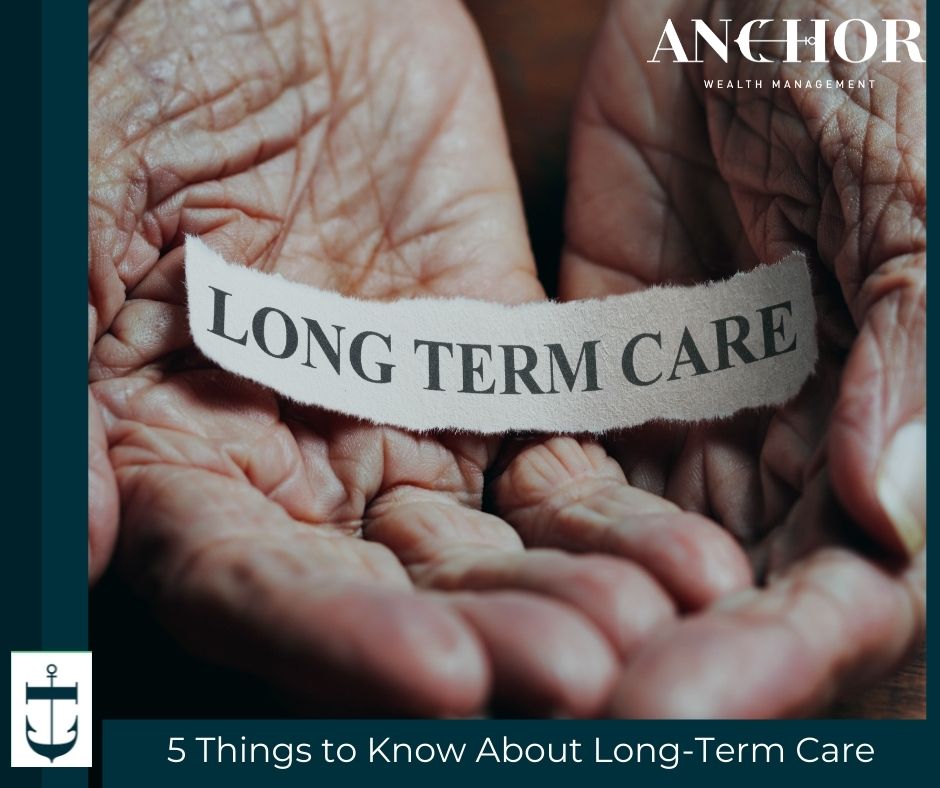
Talking about your retirement can be a fun endeavor. It’s a time to think about what life can look like when you have the freedom to do whatever you want. Because it should be a time to dream, there is a topic that people like to avoid during their retirement planning. Long-term care planning can be a scary topic to discuss. When people begin looking at their plan for retirement, this is the biggest expense to consider, and it often provokes the most stress and anxiety. Do not let the fear of the unknown keep you from being fully prepared for your retirement years. The best way to gain control over uncontrollable circumstances is to be proactive and develop a long-term care plan.
Here are 5 things to consider as you begin building a plan for your future:
Don’t wait to start a conversation about long-term care
Sadly, people aren’t having necessary conversations about long-term care until it is too late. This puts unwarranted emotional and financial burdens on your family and loved ones. At Anchor Wealth, our trusted advisors strive to have these difficult discussions early on so you can be well-prepared for any type or duration of long-term care needed. Although it may be uncomfortable to consider, having a financial plan for varying levels of long-term care is an important part of a comprehensive financial plan.
Preparing for the future is a gift to your loved ones
As you map out your financial future, your family is most likely at the forefront of your decision-making process. A lack of planning not only impacts your finances but also puts family caregivers in a potentially difficult position. When you are not prepared for the possibility of long-term care, it is your loved ones who are saddled with making sacrifices and financial decisions on your behalf. Your children and other family members may feel obligated to provide care for you, which can have serious, long-lasting implications. A staggering 70% of all adult caregivers are clinically depressed. Although it is a noble endeavor to take on the care of a loved one, it can be mentally and emotionally burdensome. Begin a discussion with an Anchor advisor today to ensure your loved ones don’t have to carry around the weight of that burden.
Be proactive
More than 50% of all long-term care claims are for cognitive reasons, such as dementia and Alzheimer’s. In these cases, patients typically need care for more than a year. Statistically speaking, the odds that you will need some type of long-term care are likely. It is extremely important to know your options. Your best bet is to be proactive in your long-term care planning. First, you need to have a thoughtful discussion with a trusted advisor. Like getting a flu shot, it might be uncomfortable or unpleasant upfront, but the discomfort is short-lived and in the long run, it will provide you comfort knowing you are protected. While having difficult conversations with your advisor may be momentarily unpleasant, it will set you and your family up for success in the long run.
Long-term care insurance isn’t always the answer
The number one reason to start a conversation with your financial advisor about long-term care is to explore all of your options. Long-term care insurance isn’t always the best choice for our clients. After we meet, our Anchor Wealth advisors can determine your financial goals and examine your assets to see if alternative strategies, such as self-insurance, or setting aside the expected cost in investments and savings, are feasible. Most people are not aware that long-term care does not always mean purchasing long-term care insurance. As technology and healthcare continually improve, seniors have more options for varying levels of in-home care. If you are able to self-fund your long-term care, you will have more power over both your care and your money. Anchor advisors will guide you through this process to find a strategy that works best for you.
Seek a financial advisor to guide your planning
Since buying long-term care insurance isn’t always the best option, we recommend you seek the advice of a financial professional who can guide you to a care plan that pairs with your financial goals. If you don’t have enough assets, the state will assume your care expenses; however, if you are at the other end of the spectrum, the state won’t take on any of your expenses. Another scenario is that you are somewhere in the middle; you have too many assets, but not enough to be self-insured, so long-term care insurance might make sense. Once an Anchor advisor evaluates your situation and understands your desires for retirement, we can begin to build a plan customized to you.
Our Promise
We believe you should put more faith in a financial professional’s ability to understand the long-term performance of the market than in betting on how many years of long-term care you may need. Our advisors can get you to a place where you feel confident about your long-term care plan. We know these conversations aren’t fun to have, but with a financial advisor that you trust it can be both easy and productive. Don’t let a lack of planning on your part thrust a family member into the unprepared role of a caregiver. Let our Anchor advisors do what we do best, work hard for you so you and your loved ones can enjoy your retirement when you get there.
Adam Ludwig, CEO/Wealth Advisor
